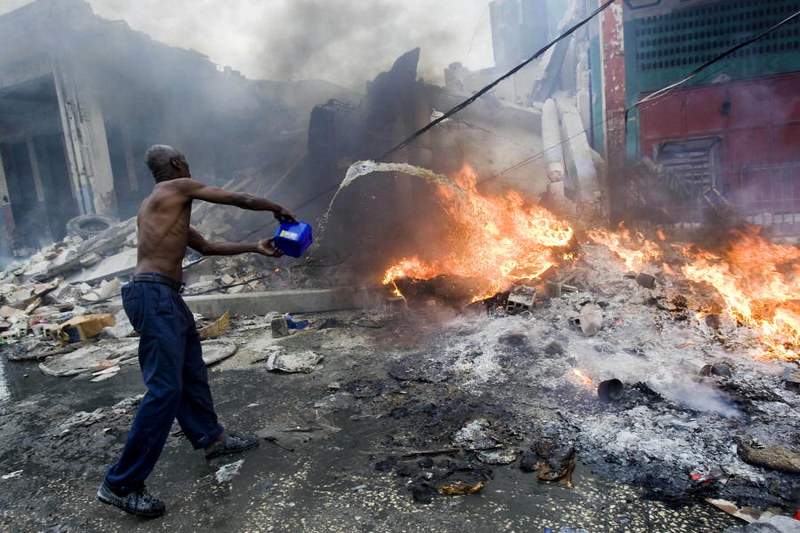The Kenyan parliament has approved a contentious government plan to send roughly 1,000 police personnel to Haiti to curb gang violence. After a heated debate, the ruling party used its majority to support the administration, despite the opposition MPs’ condemnation of the decision.
About 300 gangs are operating in Haiti, and gangs control 80% of the country’s capital, Port-au-Prince. Since the political crisis precipitated by the killing of the country’s president in 2021, these gangs have increasingly taken over the city. To combat the rising level of lawlessness, Haiti had requested assistance from abroad.
Despite the U.N. Security Council having approved the country’s offer in October, many in Kenya have resisted the plan. A coalition spearheaded by the minor opposition group Thirdway Alliance challenged the decision before the High Court, claiming that the proposal was unconstitutional, as only the military could be sent abroad. Some Kenyans argue that President Ruto and his administration ought to give domestic security issues top priority, rather than devoting national resources to addressing another country’s crisis. The man regarded as the father of Kenyan literature, Ngũgĩ wa Thiong’o, has also voiced strong opposition to the proposed deployment.
“If you know the history of Haiti,” Ngũgĩ stated, moved to the point of sobbing, “any black person would not [agree to the deployment].”
In 1804, after Gen. Toussaint Louverture led enslaved people in an insurrection, Haiti became the first republic led by Black people in history. Because Haiti’s plantations were the source of a significant portion of France’s wealth, the country’s colonial ruler became enraged and forced Haiti to pay exaggerated reparations to its former enslavers over the course of the following 122 years, finishing only in 1926. This strain on the new republic’s funds hobbled its growth, preventing Haiti from truly establishing its independence as a country or an economy.
But Kenya’s government has rejected these arguments. Legislators from the ruling party argued that, as long as the discussion covered the case’s merits, there were no restrictions on parliament’s ability to discuss the matter. During Kenya’s parliamentary voting on November 16th, those who were in favor of the resolution stated that their nation was a member of the international community and could not turn away requests for assistance from others. The international community itself has put its finger on the scales; the United States has made a financial commitment of $100 million ($1.36 million CAD) to support the expedition. (Canada has also provided financial support.)
Still, the court re-affirmed that the deployment could not happen until after it rendered its decision in January.
Kenya may have a history of participating in peacekeeping operations, including those in Sierra Leone, the Democratic Republic of the Congo, and Somalia, but rights organizations, including Amnesty International, have voiced concerns about the Kenyan police’s history of using excessive and needless force. Sending in this outside police force is not the way to solve Haiti’s gang problem.
- Kenya Debates Sending Police To Curb Haiti’s Growing Gang Problem - December 22, 2023
- Colombia Named Deadliest Country For Environmentalists - December 3, 2023
- The Damage Of Cultural Heritage In Ukraine - October 17, 2023


